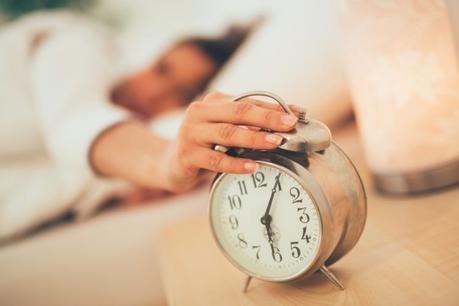Sleeping is something that all of us do and it has a number of important implications. However, although is it very important, not everyone actually gets the correct amount of sleep they require. This can happen for various reasons, but in some cases, many of you will simply struggle to fall asleep in the first place. Even when you don’t have a busy life or have an awkward sleeping pattern, some of you may put your head on the pillow and will struggle to get some shut-eye.
This doesn’t necessarily mean that you will have some sort of sleeping disorder like insomnia, and, luckily for you, it can be very easily fixed if you know the proven ways to fall asleep fast. We have performed a lot of research and have found a number of ways that can help you fall asleep and get some rest for the following day. If you want to find out these 7 unique tips, continue to read this article.
Exercise Frequently and at the Right Times

Keeping yourself fit and healthy is incredibly important in life in general. It is important to eat healthily and to get the right amount of exercise throughout the week. This, as a result, can drastically reduce later life issues. In addition to later life issues, did you know that you can improve your sleep quality with daily exercise?
There have been a series of studies that have indicated that individuals who exercise on a regular basis have a better night’s rest. This means that if you were to throw in a few minutes of exercise a day, you would be able to get a better sleep. We aren’t saying that you should go crazy and become a gym monster, but a small run or a light gym session could help you with your sleep enormously.
Avoid Exercising in the Evening
However, when it comes to exercise and sleep, there is something you need to know. When exercising to improve the quality of your sleep, try to avoid performing it in the evening. If you can, the best time to exercise is in the morning. Not only does the exercise get you started for the day but it will improve your sleep the following evening.
Exercising before bed can ruin the benefits, but only if you’re exercising quite hard. If you’re exercising hard, your body will be releasing chemicals and hormones that result in alertness and adrenaline, which are things that won’t help when you hit the sack. Keep your evening sessions light or avoid them altogether.
Resist the Snooze Button and Set Alarms a Bit Later

When we set alarms for the morning, the chances are that we will hit that snooze button for a few more minutes of sleep. Although this is very satisfying, the reality is a little more damaging. When you are hitting the snooze button, you are disturbing the pattern of sleep you just awoke from and falling back to sleep can make you feel even worse when you wake up in the next few minutes.
We aren’t saying that when the alarm goes off you need to be up and ready for the day ahead. Not even I can spring out of bed at 6 am. What you can do, however, is when the alarm goes off, just lie there for a few moments and let yourself wake up. Don’t try and go back to bed because the sleep will not be high-quality. You’ll hate yourself for doing it and so will your co-workers.
One trick you can do is to set alarms a little bit later than usual, or you can skip a few snooze cycles which can greatly improve your sleep quality and will make you feel less like a zombie when you wake up for work.
Keep a Consistent Sleep Routine
This is something that I personally do and it helps me not only stay productive but also get a good night’s rest. Setting a sleep schedule is very important if you want to maintain high-quality sleep. In addition to higher quality, you will also fall asleep a lot faster when you hit the pillow.
Setting an alarm for bedtime is something that doesn’t sound very appealing or adult, but, it can drastically help with sleep quality. It also stops those times when you get angry or frustrated because you wish you had fallen asleep earlier the night before. If this sounds like you, then try setting a bedtime alarm.
Maintaining the sleep schedule throughout the week is also very important, and this doesn’t mean you can skip out weekends. Many of us will have a work wake-up and bedtime but will change it to something easier at the weekend. This is actually not great for your sleep quality and can make things a lot harder for you when you have to rise on that Monday morning. This situation is similar to jet-lag, where your body is not used to the changing time zones.
You may be like, Insomnia: The Explanation, Causes and Treatments.
Condition Sleep and Your Bed
What I mean by this is that you need to condition yourself so you associate the bed with sleep. This follows the laws of behavioral psychology, which states you can associate an action and an object together with repetition. If you only use your bed for sleep (and sex) then, later down the line, you will find that when you get into bed your body will instantly start to relax. Try it, it’s actually very cool!
The consistency also runs into what you do before bed and how you power down so you get the best sleep possible. There are a ton of ways you can prepare for a high-quality sleep, and they will be explored in the following paragraph.
Read our expert’s buying guide to know, How to choose a mattress for better sleep.
Prepare For Bed the Right Way
Preparing for sleep is the best thing you can do when you’re looking to get a great night’s rest. With the development of technology and glaring screens, not to mention busy work schedules, it can be difficult to pull yourself away from all that and get a quality sleep. However, there are a number of ways that you improve your sleep quality by preparing for bed the right ways. Here are a just a couple.
Turn Off All Gadgets and Screens

Blue light is what helps our bodies rise and wake up. The sun is an example of blue light and when we open our eyes and see it, our bodies start to produce the necessary chemicals that help us rise.
However, blue light can be artificially created with screens from our gadgets and laptops. It is very important that when you are powering down for bed, you turn off all your gadgets with screens that emit blue light.
Try to perform this a few hours before bed. If done correctly, your body will produce the right chemicals for sleep, helping you have a good night’s rest.
Make Sure the Room is Quiet
Making sure the room you sleep in is quiet is very important if you don’t want to be disturbed during REM sleep.
Make sure that there is not apparent noise in your room when you go to sleep. Ticking of a watch or the buzzing of a laptop can be easily removed from the room. However, if you have a snorer or live in a busy area of town, invest in some earplugs.
However, although keeping your room quiet is important, evidence has found that you shouldn’t keep your room too quiet. If you have a completely silent room, those occasional bumps and scratches in the night are a lot more prevalent.
Don’t Eat Too Much

Everyone has experienced this one. Sleeping on a full stomach is painful and makes your night very restless and your body tries to break down a meal and shutdown in the same instance.
To help your body prepare itself for sleep, avoid large, heavy meals before bed. In particular, try to avoid fats and protein before bed, as these are incredibly hard to break down.
Make the Room Cool and Dark
Evidence has found that sleeping in a slightly cooler environment can help you drift off into a high-quality sleep. Experts have suggested that sleeping in a room temperature of 60-67 degrees is about perfect for a high-quality sleep. Any hotter or any colder can worsen the situation.
This might sound obvious, but keeping the room dark will drastically help you sleep. This goes back to the point of blue light and the sun. A dark room helps to tell the body it is time to shut down and produce the sleep-inducing chemicals that will result in REM. Try to keep your room as dark as possible. Blackout blinds and curtains are perfect for a dark environment.
Get Yourself a Better Pillow and Mattress

One of the main sources of a bad sleep is to do with what you’re sleeping on. Your pillow and mattress could be the main culprit that is robbing you of your sleep. Many people do not replace their mattress or pillows throughout the whole year and this can have a critical impact your sleep quality.
If you feel yourself tossing and turning through the night, we suggest you invest in a new mattress. Swapping your mattress every 5-10 years is a must. Spotting the signs early is good as well. Usually, if your mattress has lost its spring or cushioning, you will definitely need a new one.
As for pillows, these should be replaced every 12 months as they can gather dust mites and other creatures that can disturb your nights and give your allergic reactions.
The way you sleep will also affect your pillow. People who sleep on their stomach (myself) need flat pillows, whereas, side sleepers need larger, firmer pillows to create a gap for their shoulder.
Conclusion
The quality of your sleep is affected by a range of factors and, luckily for you, many of them can be changed and fixed so you can finally get a good night’s rest.
With the many tips above, you will be able to finally sort your sleeping pattern out so you can feel ready for the following day. Nobody likes to feel like a walking zombie through the day. Follow the above advice and, hopefully, you’ll finally be able to get some kip.
We recommend You to read 8 Creative Ways to Fall Asleep Faster.

